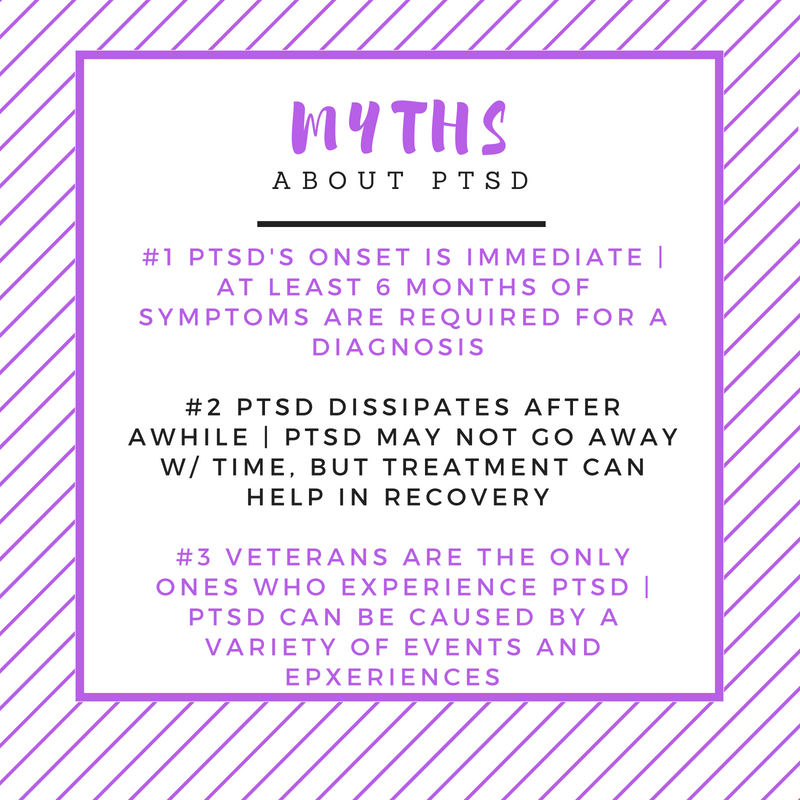
Dispelling Myths: Post-Traumatic Stress Disorder (PTSD)
It is speculated that, evolutionary, PTSD could have evolved as a heightened defense mechanism in response to immediate danger. PTSD is one of the most well-known mental disorders; it is natural for people to have a natural reaction in response to a traumatic, life-threatening event. Since PTSD is so well known, there are many misunderstandings about how PTSD manifests in affected individuals.
Myth #1: PTSD’s onset is immediate.
As PTSD is defined in the DSM-V, you cannot get an official disorder of PTSD until symptoms have been present for over 6 months. If symptoms last for a shorter period of time, someone might be experiencing acute stress disorder instead. Whether or not this will develop into PTSD depends on many different factors that can change from one individual to the next. How PTSD manifests itself in an individual can also vary. People can experience a range of different symptoms continuously for months or after being triggered by environmental stressors. The onset of their symptoms might be immediate or it symptoms can start to appear after several months or years.
Myth #2: PTSD dissipates after awhile.
While PTSD can be treated, like any other mental disorder, it might not go away with just time. Often, many people suffering from PTSD need medical help before their mental health can significantly improve. Many sufferers hesitate to get the help they need due to a number of reasons and fears, but treatment can quicken the process of recovery.
Myth #3: Military veterans are the only ones who experience PTSD.
While we may frequently think of the honorable veterans who suffer from PTSD, there are many kinds of events that can result in the development of this disorder. These events could be something that was either experienced or witnessed by the individual that was considered a threat such as different forms of abuse, violence, or neglect.
Recovering from PTSD is possible and there are numerous kinds of therapy and medication dedicated to helping those who are suffering that are readily available. There are also many steps that someone can take to help themselves recover. Recovering from any mental illness can be a longer arduous process, but at the end of the struggle an individual will be able to return to functioning in their daily lives as they once did before. For many who are suffering, it is useful to to connect and build a community or to reconnect with friends and family. After experiencing trauma, it can be easy for an individual to feel isolated and alone; however, finding people who care, will listen, or have gone through something similar can help someone in their first steps of recovery. Finding activities that help someone relax (reading, yoga, meditation) and getting lots of rest can help both the mind and body recuperate. Refraining from various kinds of drugs is recommended, as they could possibly make symptoms worse or lead to a substance use problem that can delay recovery.
If you are struggling with PTSD or know someone who might be struggling, please feel free to contact the professional team at Lifeline Connections for help! Getting help for any mental health disorder can improve your prognosis and help you begin your recovery towards a
better quality of life. You can visit Lifelineconnection.org or call 360.397.8246 for more
information.
